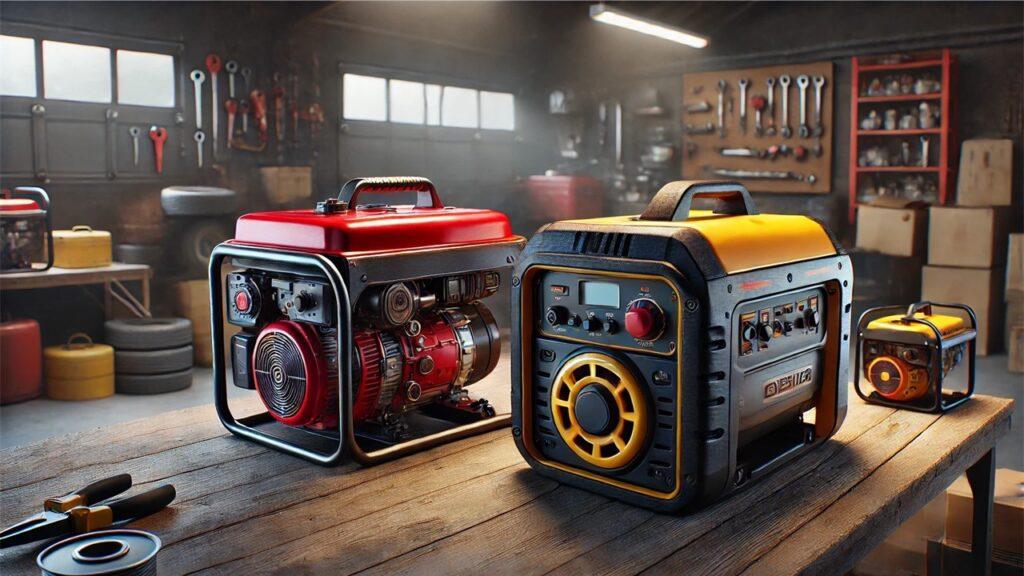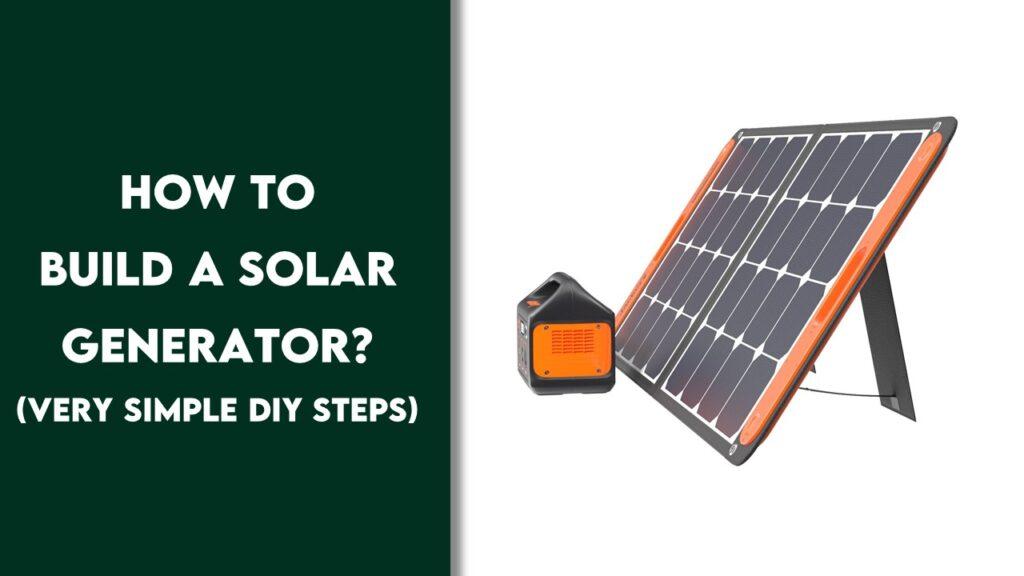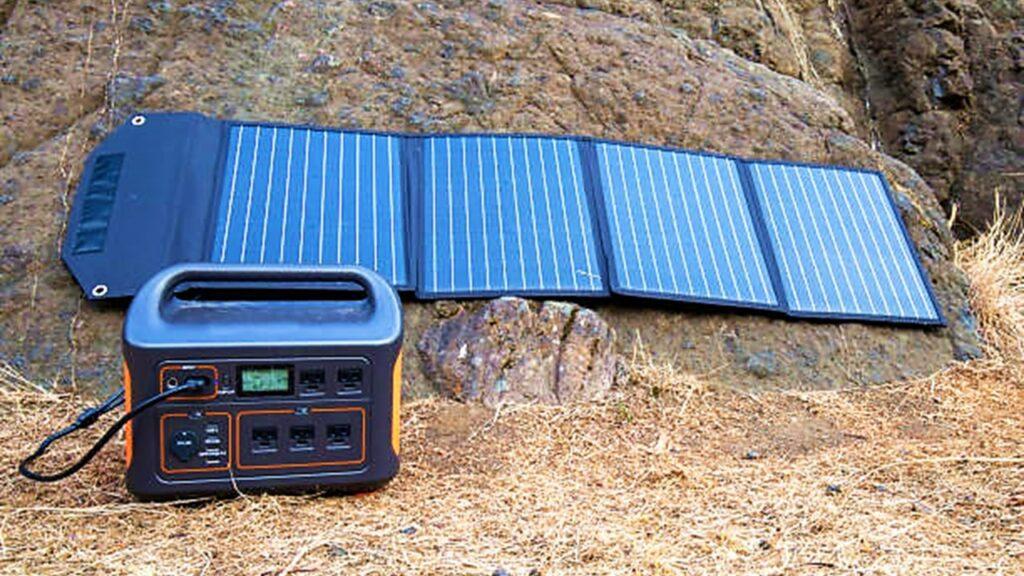
In the search for reliable and efficient power solutions, the choice between inverter generators vs conventional generators is critical. While both offer distinct advantages, understanding their differences is key to selecting the right generator for your needs. This article dives deep into the functionalities, benefits, and ideal use cases for both types of generators, providing you with a detailed guide to make an informed decision. Whether for home use, outdoor events, or industrial applications, knowing which generator fits your requirements can save you time, money, and energy.
Understanding Generators: Basics and Beyond
Generators are pivotal in providing electricity when regular power sources are unavailable. This section explains the fundamental principles behind conventional and inverter generators, shedding light on how they work and what sets them apart. By understanding their core technologies and features, you can better assess which type might suit your power needs more effectively.
What Are Conventional Generators?
Conventional generators, also known as standard generators, operate on the simple concept of converting mechanical energy into electrical energy. This conversion is achieved through an engine connected to an alternator. The engine burns fuel—usually gas, diesel, or propane—to produce mechanical motion, which the alternator then converts into electricity. Typically, these generators are known for their robustness and high power output, making them suitable for heavy-duty applications. However, they tend to be heavier, louder, and less efficient in fuel consumption compared to their inverter counterparts.
What Are Inverter Generators?
Inverter generators use a more complex technology that initially produces AC power, converts it to DC, and then back to a stable AC output. The key advantage of this process is the clean and stable electricity output, which is safe for sensitive electronics like laptops and smartphones. Inverter generators are generally lighter, quieter, and more fuel-efficient than conventional generators. They adjust the engine speed to the load demand, which significantly improves fuel efficiency and reduces noise.
Comparative Analysis: Inverter Generators vs. Conventional Generators
When choosing between an inverter and a conventional generator, several factors like power quality, fuel efficiency, and design must be considered to match the generator to your specific needs. This section compares these essential aspects to help you understand which generator type might be the right choice for you.
Power Output and Quality
The power output of conventional generators is typically higher than that of inverter generators, making them ideal for powering large appliances and tools. However, the power quality from inverter generators is superior because of the stable and clean output, which is crucial when using sensitive electronic devices. This difference is particularly important in situations where power consistency and quality can prevent damage to equipment.
Fuel Efficiency and Running Costs
Inverter generators are more fuel-efficient due to their ability to adjust engine speeds based on the electrical load. This not only means less fuel consumption but also lower running costs over time. Conventional generators run at a constant speed, regardless of the load, leading to higher fuel use and increased costs, especially during extended use.
Portability and Design Differences
Portability is a significant factor in choosing a generator. Inverter generators are typically designed to be compact and lightweight, making them easy to transport and store. This makes them ideal for camping, tailgating, and other mobile activities. On the other hand, conventional generators are bulkier and heavier, which can be a drawback for frequent movement but beneficial for stationary, high-power needs.
Environmental Impact and Noise Levels
When choosing a generator, it’s important to consider how much noise it makes and what kind of impact it has on the environment. This section explores how inverter and conventional generators compare in terms of noise production and environmental friendliness. Understanding these aspects can help you choose a generator that not only meets your power needs but also aligns with your environmental values and noise tolerance.
Noise Production Comparison
Inverter generators are designed to be much quieter than conventional generators. This is because they can adjust their engine speed to the load required, which usually means they run at lower speeds and produce less noise. Conventional generators operate at a constant high speed, which typically generates more noise. This makes inverter generators ideal for use in noise-sensitive environments like residential areas or camping sites.
Emissions and Eco-friendliness
Emissions are another crucial factor to consider. Inverter generators are generally more fuel-efficient and produce fewer emissions compared to conventional generators. This is due to their ability to modulate engine speeds based on demand, which leads to more complete combustion of fuel. Additionally, newer models of inverter generators are often designed to meet stricter environmental regulations, making them a more eco-friendly option.
Maintenance and Durability
Maintaining your generator properly is key to ensuring it runs efficiently and lasts a long time. This section discusses what kind of maintenance is needed for both inverter and conventional generators and looks at how durable each type is. Knowing this can help you manage your generator better and choose one that will serve you reliably over the years.
Maintenance Requirements
Both types of generators require regular maintenance, but the specifics can vary. Conventional generators often need more frequent maintenance due to their constant high-speed operation, which can wear out parts more quickly. Inverter generators may require less frequent checks, but staying on top of maintenance is still crucial to ensure performance and longevity.
Lifespan and Reliability
The lifespan of a generator can vary based on its model, usage, and how well it’s maintained. Generally, inverter generators have a longer lifespan in consumer-level applications due to their efficient operation and lower wear and tear. However, conventional generators are typically built for durability and can handle larger loads and longer running times, which might be required in commercial settings.
Suitability Based on Use Case Scenarios
Not every generator will fit every situation. This section looks at which types of generators are best for different needs. Whether you’re powering a large event or just need a backup power source for your home, understanding these scenarios can guide you to the right choice.
Ideal Scenarios for Inverter Generators
Inverter generators excel in situations where portability, low noise, and energy efficiency are important. They are perfect for outdoor activities like camping, boating, or tailgating where you need power without the disturbance of loud noise.
Ideal Scenarios for Conventional Generators
Conventional generators are best suited for situations requiring high power output over extended periods. They are ideal for powering entire homes during outages (generators for emergency home backup), large construction sites, or any setting where the noise level is not a primary concern.
Making the Right Choice: Factors to Consider
Choosing the right generator involves more than just picking one off the shelf. You need to consider how much power you actually need and how much you’re willing to spend. This section helps you figure out how to assess your power requirements and weigh the costs, ensuring you get the best generator for your money and needs.
Assessing Your Power Needs
To determine your power needs, start by listing all the devices you plan to run on the generator. Check each item’s power requirements, usually listed in watts, and add them up. Remember to account for starting watts required by appliances with motors, as they need more power to start up than to run. Tools like online wattage calculators can help simplify this task, ensuring you don’t underestimate or overbuy, which can lead to unnecessary expenses.
Budget Considerations
When comparing costs, look beyond the purchase price. Consider fuel efficiency, maintenance expenses, and the longevity of the unit. Inverter generators might cost more upfront but typically offer greater fuel efficiency and lower long-term operating costs. On the other hand, conventional generators are less expensive initially but may cost more in the long run due to higher fuel consumption. Evaluating your budget against your power needs and the expected usage can help you make a cost-effective decision.
Wrapping It Up!
Selecting the right generator is crucial, not only for meeting your power needs but also for ensuring efficiency and environmental friendliness. By understanding the differences between inverter and conventional generators and considering how they align with your usage scenarios, you can make an informed decision. Remember, the right choice depends on assessing your power needs accurately, understanding the total cost of ownership, and knowing what you value most in terms of convenience, efficiency, and sustainability. Whether for home use, outdoor activities, or large-scale events, carefully choosing your generator ensures that you have reliable power whenever and wherever you need it.
Related FAQs
How Long Can Inverter Generators Run Continuously?
Inverter generators can typically run continuously for 8 to 10 hours, depending on the model and fuel load.
Can Conventional Generators Power Sensitive Electronics Safely?
Conventional generators can power electronics, but using a surge protector or power conditioner is recommended for sensitive devices.
Are Inverter Generators Worth the Extra Cost?
Inverter generators are worth the investment for those needing quiet, fuel-efficient, and stable power, especially for sensitive electronics.
What Maintenance Do Conventional Generators Require?
Conventional generators require regular oil changes, air filter replacements, and general engine checks to ensure longevity and reliability.
Can I Upgrade My Conventional Generator to Be More Eco-Friendly?
Upgrading is limited, but using cleaner fuels like propane or installing a carbon monoxide detector can make conventional generators safer and slightly more eco-friendly.
At our core, we’re a group of passionate generator, inverter, solar energy, battery enthusiasts. We dive deep into the world of tech, especially when it’s about powering your home, RV or outdoors. We try to provide as much value to the readers with our information and how to blog articles as possible. For affiliate articles our honest and transparent reviews of essential tech products are rooted in real-world experience. We take great satisfaction in offering unbiased evaluations, ensuring that you can make informed decisions when investing in your desired techs.




